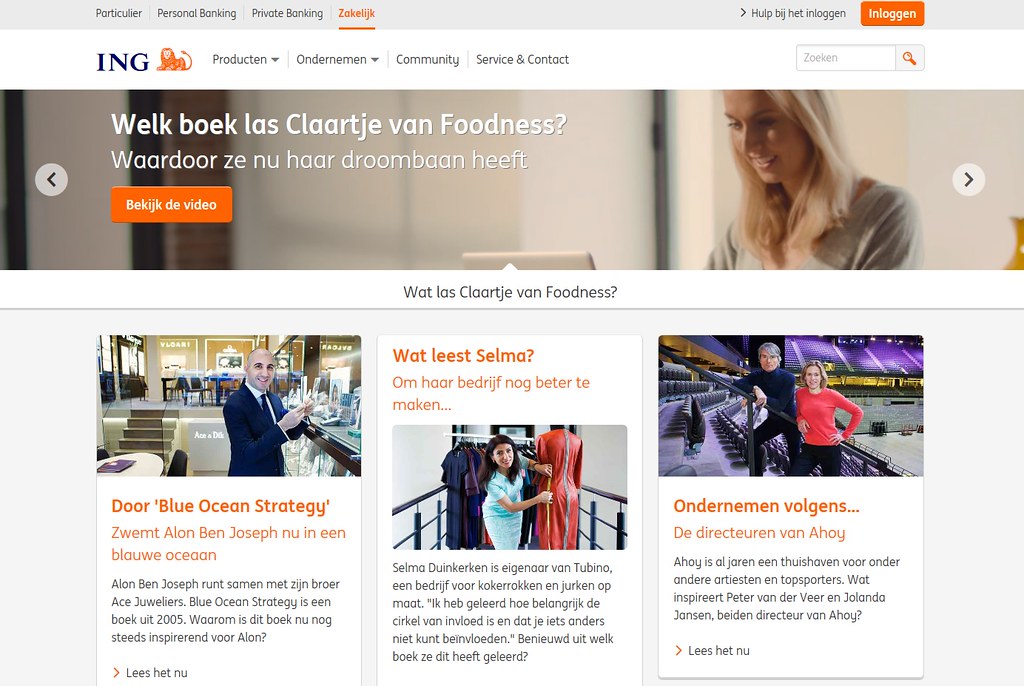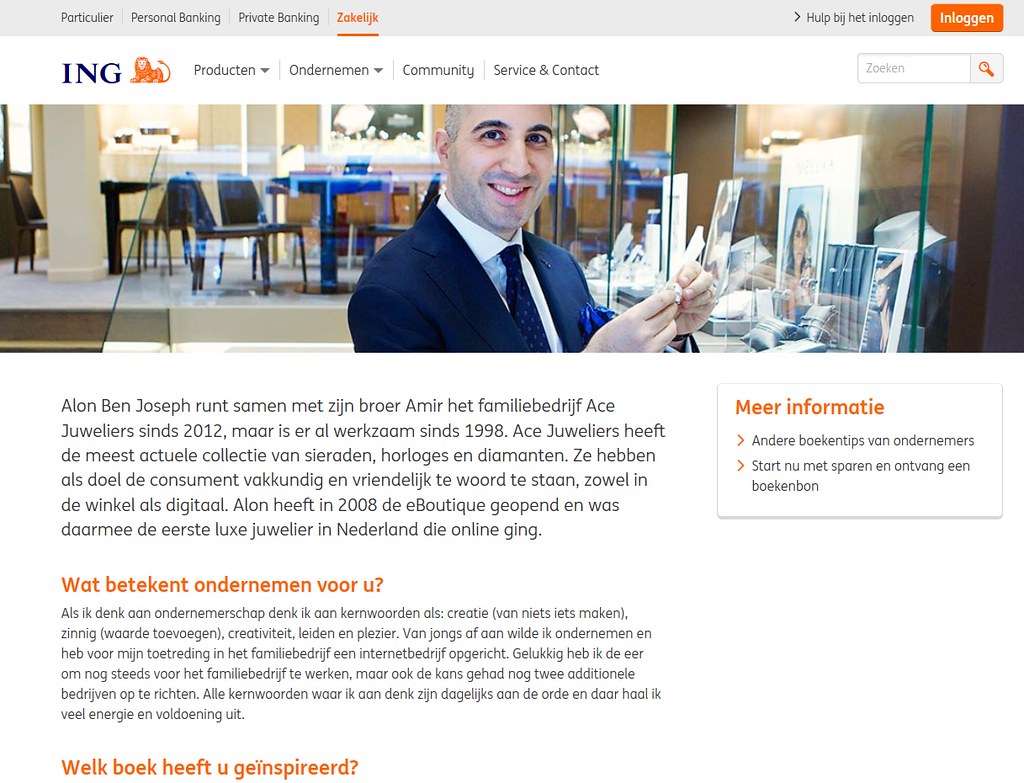Today I finished reading "#AskGaryVee" by Gary Vaynerchuck a.k.a. Gary Vee, his forth book.
Way before #AskGaryVee came out, I have been a great Gary Vee fan since he started his video's for his family's wine business, back in 2006. Ten years later the family business in New Jersey (USA) is named WineLibrary.com with a very successful TV channel named: WineLibrary.tv. I strongly recommend you watch the first episode, the 500th episode en the 999th epsiode to find out what evolution Gary Vee made as a person and what revolution he created in the social commerce world!
In 2009 Gary Vee published his first book "Crush It!: Why NOW Is the Time to Cash In on Your Passion", followed two years later by "The Thank You Economy" and in 2013 his third best-seller "Jab, Jab, Jab, Right Hook: How to Tell Your Story in a Noisy Social World" came out. As huge fan of Gary I obviously bought each book when it came out and inspired my own teams at work to read them too. All of us not only learned a lot from these books in the rapidly changing eCommerce world, but also got inspired to capitalize on our extreme passion at Ace Jewelers.
After Gary stopped at the 1000th episode of WineLibrary.TV in 2011, he hasn't done a real video show anymore... Until he started The #AskGaryVee Show in the Summe of 2014. An awesome, pure and raw video show where Gary answers any question of the audience and inspires them uncut. Including Team Ace and me. A brilliant Q&A Show on YouTube with cutting-edge knowledge and information, free of charge! A must-see show. Four days ago he posted episode 197 on his YouTube channel. As this show became such a success and many viewers asked why he doesn't summarize the best Q&A's, he decided to do so by writing his fourth book... Guess what he named it... Right, #AskGaryVee 😉
I highly recommend you start watching some video's of the #AskGaryVee show, but when (like me) you are too busy 'hustling' (business-wise) and 'crushing it' (Gary Vee Style) and don't have time to watch every episode, you have to get this book! He summarizes the best questions from the show in a 344 paged book that reads so easily, you can read it in a transatlantic flight or long train ride!
Still skeptical and do not want to take my word for it, no problem 😉 Let the content convince you, here are five takeaways from the book itself with my personal feedback on each of them:
- Pages 132-134:
Q: "What's the best advice you can give salespersons in the social media/digital world age?"
A: "... You want to be tactical, but you have to practice the religion of providing value first. How many people put out stories, give free stuff, or engage with people? Probably quite a lot. Now, how many do that without any expectations in return? Very, very few. Be one of these few. When you have no expectations people can sense it, and funny enough, the absence of pressure or obligation actually makes them want to reciprocate."
Feedback Alon: This is how I have been raised by my parents and totally feel Gary in this subject and view of life. I have always been thought to do everything to the best of your abilities, add value and do good without expecting any thing in return. Call it karma, but I truly believe in doing good and good will come to you. This goes for anything in life, so in business as well!
- Page 150:
Q: "What will the next big social network have to do to challenge Facebook, Twitter, or Instagram?"
A: "There are two keys to the succes of a social network. 1. Win over the youth market. The network that makes Snapchat feel like it's for old people will be the next social superstar. 2. Be extraordinarily useful. Instagram was just a place to post pretty pictures until people realized it actually made them better photographers. ... In sum, if you're trying to develop the next big platform, create something the youth of the world didn't know it couldn't live without."
Feedback Alon: In my previous blog post I wrote about the relevance of Blue Ocean Strategy, even ten years after the book was published. Gary basically says you need to create a blue ocean for your business and if that business has to do with social media, make sure you focus on the innovators and early adaptors in the market... The Youth!
- Pages 158-159:
Q: Will Facebook video become a rival for YouTube as a monetized video platform?"
A: "It already has. ... So I suggest that those of you out there doing YouTube shows should start doing Facebook shows, too. ... I am not saying you should give up on YouTube. It's still extremely relevant and important. But if you're creating content for YouTube, throw it up on Facebook as well. Not with a link to the video - you won't get the reach you want that way. Remember, native is the way to go."
Feedback Alon: This is a piece of really valuable information. At Ace Jewelers we have been investing the last five years in 100% unique in-house produced content: text, photo and video. We strugled with the question of dubplicate content and the effect it has on SEO/SEM.
- Page 160:
Q: "My little sister has Insta and Facebook but has no interest in Facebook. What do you think the future holds for Facebook?"
A: "Facebook's Mark Zuckerberg is an assassin. There's a reason he bought Instagram and there's a reason he tried to buy Snapchat for $3 billion-he wanted teens. ... Don't ever count Facebook out. It's going to be the infrastructure for over-the-top TV, of free Internet, or the best phone we've ever seen. Just you wait."
Feedback Alon: I think this question is on everyone's mind! I was really surprised by this bit of feedback and gave Team Ace Online at Ace Jeweler Group the confidence to strengthen our efforts and investments on the Facebook platform. We also thought Facebook was losing momentum!
- Pages 200-201:
Q: "How do I create interesting content for a boring product or a stale industry?"
A: "... Next, think outside your industry altogether. When I was still selling wine, people would always tell me about other retailers that were doing interesting things and suggest I go for a visit. You know what my answer was? "I don't give a crap." The truth is despite all my years in wine, I spent an amazingly little amount of time within the industry itself. The same can be said for the agency industry, even though am working in it now. I've been to maybe six other agencies in my life. I don't follow industry news. I try not to listen to what else is going on. ... Taking an open, optimistic attitude will keep your content fresh and exciting, and allow you to change the world's perception of your "boring" product."
Feedback Alon: I am a huge fan of thinking outside the box! Huge! I always say that we are prisoners of our own minds and that impossible does not exist. When I read this Q&A I really started thinking about this and discussed this with my own team at work. We work in a very old and traditional industry, with products described in The Bible: gemstones, diamonds and gold. So, sometimes we also get caught up inside 'the box'... But, at Ace Jewelers, like our names says it: we want to excel, be the first and innovate. To innovate you have to map your own trail and be a trailblazer!
Hope this give you a little taste of what Gary Vee is about and what valuable insights and info he shares.
Finally, if you are an (future) entrepreneur and want to see what 'hustling' and 'crushing it' means by Gary Vee, make sure to check his autobiographic documentary styled Video Show "DailyVee" on YouTube.
In case you are a GaryVee Fan too and/or have seen The #AskGaryVee Show/read the book, please share your takeaways in the comment field here below. #ThankYou




